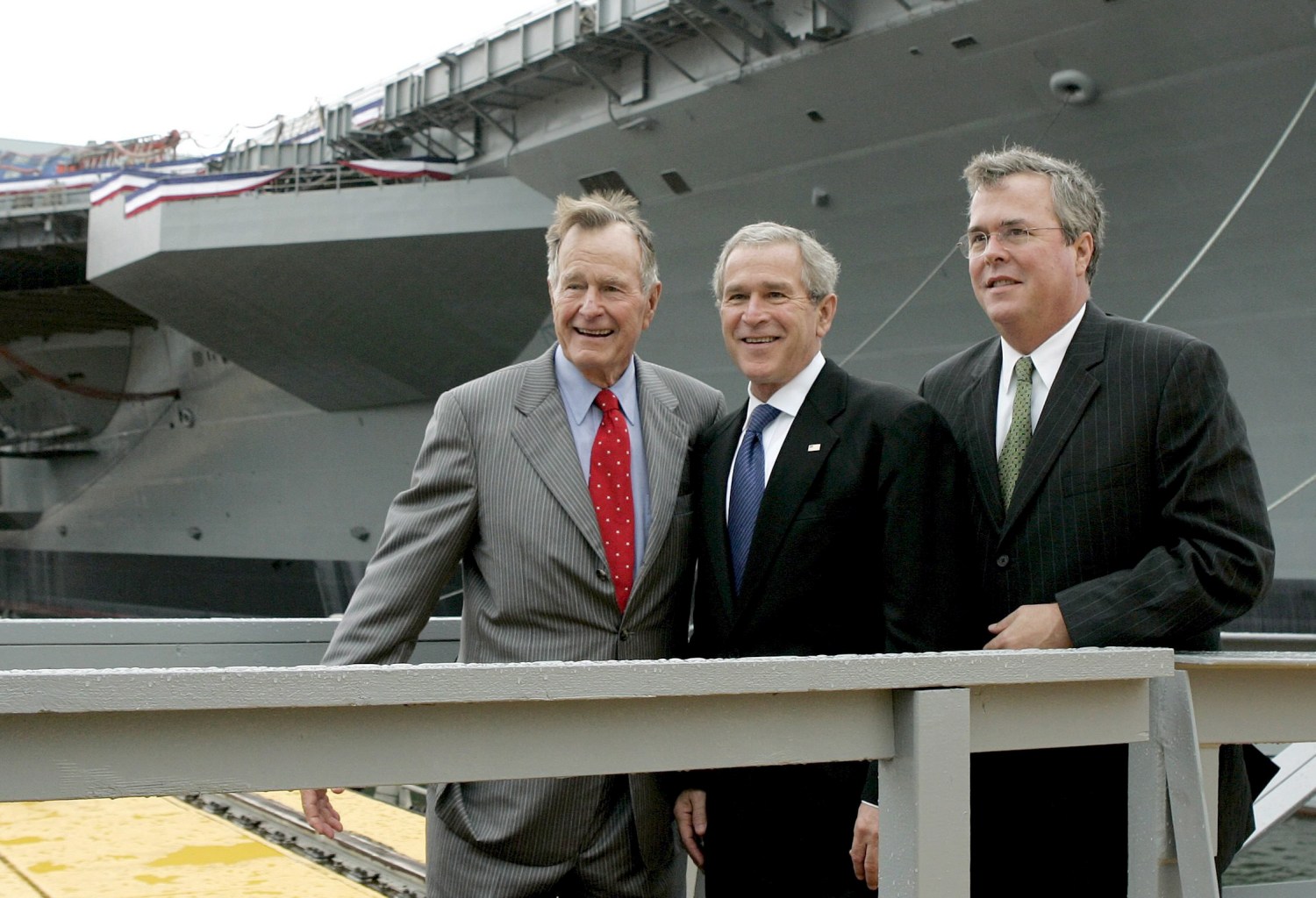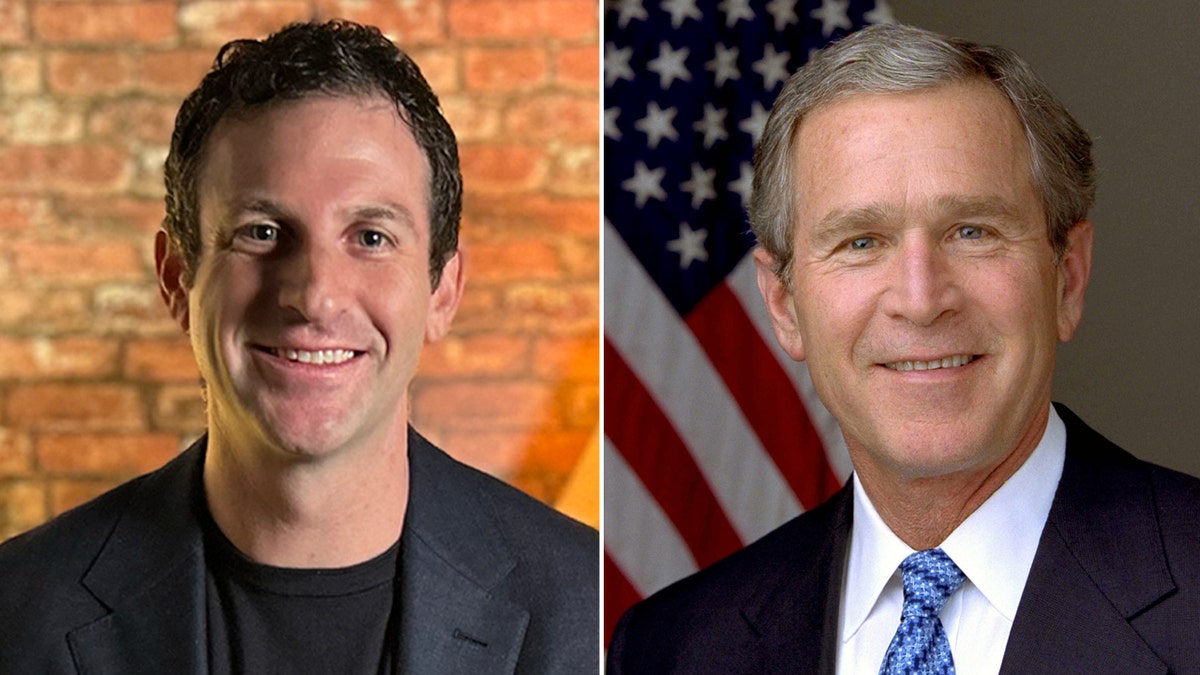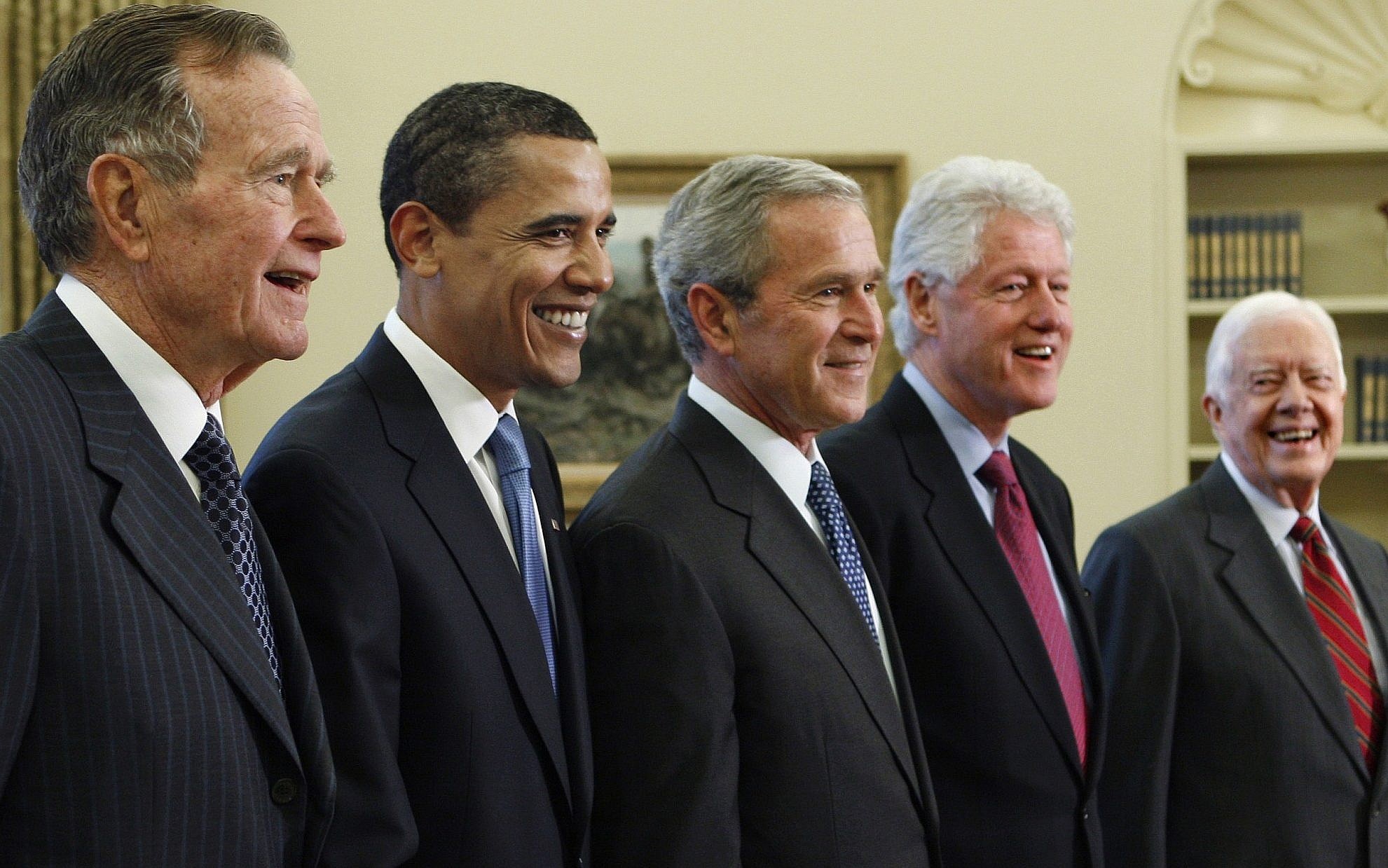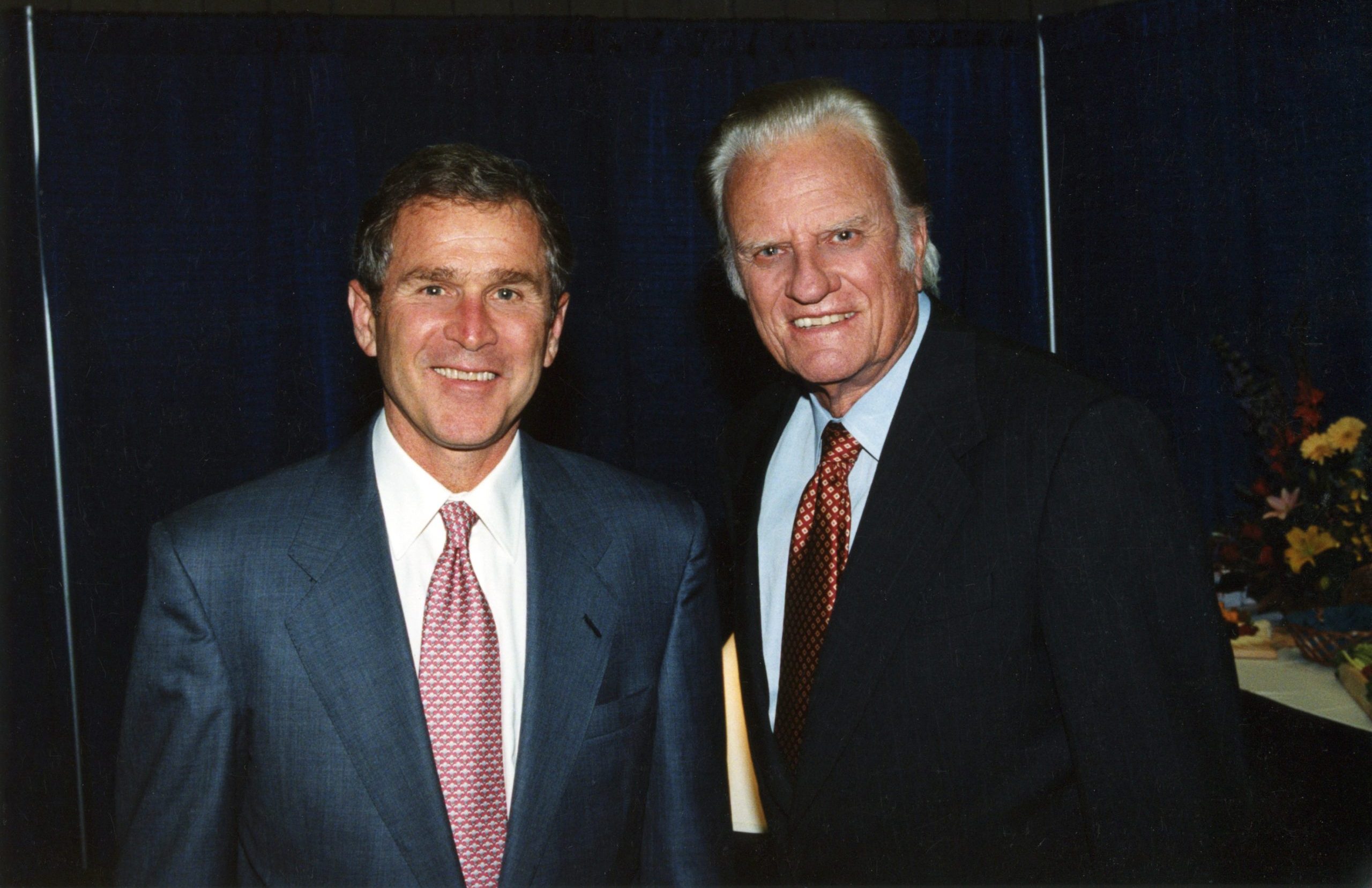George W. Bush: A Controversial Legacy
 George W. Bush, the 43rd President of the United States, assumed office in one of the most tumultuous periods in American history. His presidency, spanning from 2001 to 2009, was marked by significant events that reshaped not only American politics but also global dynamics. Bush's tenure in the White House was characterized by both moments of triumph and instances of controversy, leaving a complex legacy that continues to spark debate and analysis.
George W. Bush, the 43rd President of the United States, assumed office in one of the most tumultuous periods in American history. His presidency, spanning from 2001 to 2009, was marked by significant events that reshaped not only American politics but also global dynamics. Bush's tenure in the White House was characterized by both moments of triumph and instances of controversy, leaving a complex legacy that continues to spark debate and analysis.
Early Life and Political Career
Born on July 6, 1946, in New Haven, Connecticut, George W. Bush hailed from a prominent political family. His father, George H. W. Bush, served as the 41st President of the United States, providing young George with exposure to politics from an early age. After graduating from Yale University and Harvard Business School, Bush ventured into the oil industry before eventually finding his calling in politics.
Bush's political journey began in earnest with his election as Governor of Texas in 1994. As governor, he implemented conservative policies, particularly in education and taxation, which earned him popularity among Republican constituents. His gubernatorial success paved the way for his bid for the presidency in 2000.
The 2000 Presidential Election and Domestic Agenda
The 2000 presidential election between George W. Bush and Democratic nominee Al Gore was one of the closest and most contentious in American history. The race famously hinged on the outcome in Florida, where a disputed vote recount led to a Supreme Court decision in Bush's favor. Despite winning the electoral college but losing the popular vote, Bush assumed the presidency in January 2001.
Bush's domestic agenda prioritized tax cuts, education reform, and conservative social policies. His administration passed substantial tax cuts, aimed at stimulating economic growth and reducing the tax burden on individuals and businesses. The No Child Left Behind Act, signed into law in 2002, was a bipartisan education reform effort focused on improving accountability and academic standards in public schools.
9/11 and the War on Terror
The defining moment of George W. Bush's presidency came on September 11, 2001, when terrorists hijacked four commercial airplanes, crashing two into the World Trade Center in New York City and one into the Pentagon in Arlington, Virginia. The attacks, which claimed nearly 3,000 lives, shocked the nation and propelled Bush into a new era of governance.
In response to the September 11th attacks, Bush declared a global War on Terror, vowing to hunt down terrorists and hold accountable any nations that harbored or supported them. The invasion of Afghanistan in October 2001 aimed to dismantle the Taliban regime and disrupt al-Qaeda's operations. While initially successful in overthrowing the Taliban, the conflict evolved into a protracted and complex insurgency, challenging American military and diplomatic efforts.
Iraq War and Controversy
Perhaps the most controversial aspect of George W. Bush's presidency was the decision to invade Iraq in 2003. Citing intelligence that Saddam Hussein possessed weapons of mass destruction (WMDs) and posed a threat to international security, Bush rallied domestic and international support for military action. The invasion swiftly toppled Saddam's regime, but the expected WMDs were never found, leading to intense scrutiny and criticism of the administration's justification for war.
The Iraq War, which lasted for nearly nine years, resulted in significant casualties, both civilian and military, and strained America's relations with its allies. The failure to adequately plan for the post-war reconstruction of Iraq contributed to sectarian violence and instability in the region, with long-lasting consequences that continue to shape Middle Eastern geopolitics.
Response to Hurricane Katrina and Domestic Criticism
In 2005, Hurricane Katrina struck the Gulf Coast of the United States, unleashing one of the deadliest and most destructive natural disasters in the country's history. The federal government's response to the crisis was widely criticized as slow and ineffective, particularly in the initial days following the storm's landfall. Bush faced significant backlash for the perceived mishandling of the disaster, which exposed systemic failures in emergency preparedness and response.
Legacy and Reflection As George W. Bush's presidency drew to a close, public opinion of his tenure remained deeply polarized. Supporters praised his leadership in the aftermath of 9/11 and his commitment to advancing conservative principles, while critics pointed to the Iraq War, Hurricane Katrina, and the financial crisis of 2008 as glaring failures of governance.
As George W. Bush's presidency drew to a close, public opinion of his tenure remained deeply polarized. Supporters praised his leadership in the aftermath of 9/11 and his commitment to advancing conservative principles, while critics pointed to the Iraq War, Hurricane Katrina, and the financial crisis of 2008 as glaring failures of governance.
In his post-presidential years, Bush largely retreated from the political spotlight, focusing instead on philanthropic endeavors and painting, a newfound passion. Despite the controversies that defined his presidency, Bush's legacy continues to evolve, shaped by ongoing debates over national security, executive power, and America's role in the world.
In conclusion, George W. Bush's presidency was a consequential chapter in American history, defined by moments of triumph and turmoil. While his administration achieved significant legislative victories and responded decisively to national crises, it also grappled with missteps and controversies that left a lasting impact on the nation and the world.
This essay provides a broad overview of George W. Bush's presidency, touching on key events, policies, and controversies. Depending on your specific focus or requirements, additional detail could be added to further explore certain aspects of his presidency.
Foreign Policy and Diplomacy
George W. Bush's foreign policy was characterized by a doctrine of preemptive strikes and a commitment to spreading democracy, encapsulated in the notion of the "Bush Doctrine." Beyond the War on Terror, his administration pursued an aggressive stance towards rogue states and perceived threats to global stability.
The doctrine of preemptive war was prominently showcased in the invasion of Iraq, as the administration argued for the necessity of removing regimes that posed a potential threat to the United States and its allies. This approach, however, drew criticism from many quarters, both domestically and internationally, for its departure from traditional norms of international law and diplomacy.
Furthermore, the Bush administration's unilateralist tendencies strained relations with key allies, particularly in Europe, where opposition to the Iraq War was widespread. The strained transatlantic relationship underscored the challenges of pursuing a foreign policy agenda that prioritized American interests over multilateral cooperation.
Economic Policies and the Great Recession:max_bytes(150000):strip_icc():focal(749x0:751x2)/george-w-bush-2-d2777c7fb67f474e91aebaa293ebe1a7.jpg)
George W. Bush inherited a relatively stable economy upon taking office in 2001, but his tenure was bookended by two significant economic downturns. The first occurred in the aftermath of the dot-com bubble burst, leading to a mild recession in 2001. The administration responded with tax cuts and stimulus measures to spur economic growth, ultimately presiding over a period of expansion and job creation.
However, the latter part of Bush's presidency was marred by the worst financial crisis since the Great Depression. The collapse of the housing market and subsequent banking crisis triggered a global recession that reverberated throughout the economy. Critics pointed to lax regulatory oversight and Wall Street excesses as contributing factors to the crisis, highlighting failures in the administration's economic stewardship.
Legacy and Historical Assessment
As time has passed since George W. Bush left office, scholars and historians have offered varying assessments of his presidency. While some argue that his decisive leadership in the wake of 9/11 was commendable, others critique his administration's handling of the subsequent wars in Afghanistan and Iraq, as well as its broader approach to national security and civil liberties.
The Iraq War, in particular, remains a contentious topic of debate, with ongoing discussions about the legitimacy of the invasion and its long-term consequences for regional stability. Moreover, the erosion of civil liberties in the name of counterterrorism, including the controversial Patriot Act, has raised concerns about the balance between security and individual rights. In terms of domestic policy, Bush's tax cuts and education reform initiatives have left a lasting imprint on the American landscape, shaping debates over fiscal policy and educational equity. However, the shortcomings of his administration's response to Hurricane Katrina and the financial crisis have underscored the importance of effective governance and crisis management.
In terms of domestic policy, Bush's tax cuts and education reform initiatives have left a lasting imprint on the American landscape, shaping debates over fiscal policy and educational equity. However, the shortcomings of his administration's response to Hurricane Katrina and the financial crisis have underscored the importance of effective governance and crisis management.
In hindsight, George W. Bush's presidency defies simple categorization, as it encompassed both moments of triumph and grave challenges. His legacy continues to be a subject of scrutiny and reflection, reflecting the complexities of leadership in an increasingly interconnected and volatile world.
Conclusion
George W. Bush's presidency occupies a pivotal place in American history, marked by a series of defining moments and consequential decisions. From the aftermath of 9/11 to the wars in Afghanistan and Iraq, his administration grappled with complex challenges that shaped the course of the nation and the world.
While his leadership style and policy decisions continue to evoke strong opinions, the enduring legacy of the Bush presidency lies in its reflection of the complexities of governance and the inherent trade-offs between security, liberty, and prosperity. As America navigates its future challenges, the lessons of the Bush era remain pertinent, serving as a reminder of the enduring responsibilities of leadership and the imperative of learning from the past.



































